An open letter to Pakistan
Rather than flounder, “India and Indians really do want Pakistan to win” blogs Prashant Agarwal. Here are five pieces of brotherly advice for our neighbour.

Rather than flounder, “India and Indians really do want Pakistan to win” blogs Prashant Agarwal. Here are five pieces of brotherly advice for our neighbour.
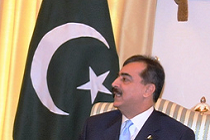 Courtesy: IIP State/Flickr
Courtesy: IIP State/Flickr
The current standoff between the Pakistani Government and the Supreme Court is yet another sign of Pakistan’s instable democracy. Will this lead to another transition to military rule? Or will the pillars of the media and the judiciary be able to bring about a balance?
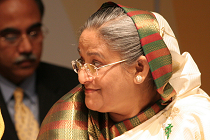 Courtesy: US Mission Geneva/Flickr
Courtesy: US Mission Geneva/Flickr
Bangladesh Prime Minister Sheikh Hasina's visit to Tripura marks a turning point in India-Bangladesh relations. The two countries share an extraordinary history, but the key to India's engagement with Bangladesh is through Tripura.
 Courtesy: The White House/WikimediaCommons
Courtesy: The White House/WikimediaCommons
The new U.S. defense strategy calls for less military spending, and a focus on Asia-Pacific with the strategic emphasis to counter China’s defense build-up as the focal point. This shift could drive the debate toward an aggressive new Cold War rhetoric against China, or accommodation driven by economic necessity.
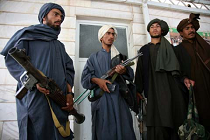 Courtesy: isafmedia/Flickr
Courtesy: isafmedia/Flickr
With the prospect of a new Taliban office in Qatar, who would go to the negotiating table from a position of strength, the Taliban or the Afghan government? And what do Afghans think of the contentious TAPI pipeline? Dr. Roashan gives us an Afghani perspective of the geopolitics surrounding the war-torn nation.
India and Japan have designed their collaborations over the years to be a win-win for both sides. Now, they are willing to collaborate on long-term initiatives, based on intrinsic factors of inter-dependent competencies – rather than on the defence of an extrinsic threat of a common enemy.
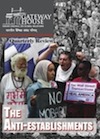 Courtesy: Gateway House
Courtesy: Gateway House
The quarterly review includes all Features written exclusively (unless mentioned otherwise) for Gateway House: Indian Council on Global Relations by various contributors and Gateway House staff.
 Courtesy: nazeah/Wikimediacommons - Ramesh Lalwani/Flickr
Courtesy: nazeah/Wikimediacommons - Ramesh Lalwani/Flickr
The year 2011 saw various events - the Arab Spring, anti- corruption protests, Europe's sovereign debt crisis - transform countries and reshape the world order. Gateway House takes a look at what these events mean for India, and presents India's top foreign policy cheers and jeers for the year.
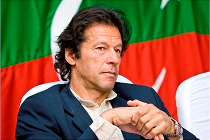 Courtesy: Jawad Zakariya/WikimediaCommons
Courtesy: Jawad Zakariya/WikimediaCommons
Imran Khan, leader of the Pakistani political party Tehreek-e-Insaaf, means well, and has the support of many in his country. But without any solid reforms manifesto, and almost no one in his party to implement his plan, what really are his chances in the upcoming elections?
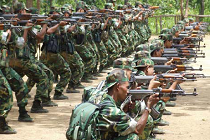 Courtesy: Manipur Police/WikimediaCommons
Courtesy: Manipur Police/WikimediaCommons
What have economic blockades in India's North East achieved? For one, they choked off the supply chain of an already isolated region. With Myanmar showing signs of warming towards India, New Delhi must establish ties with its eastern neighbour, but first, it needs to fix Manipur’s broken socio-political landscape.